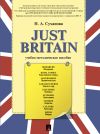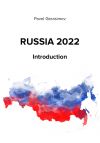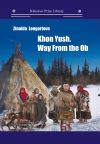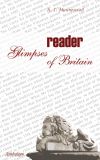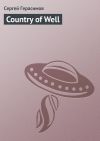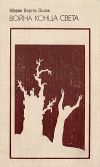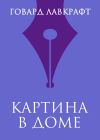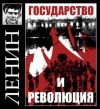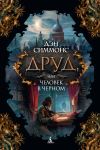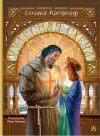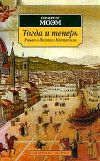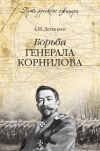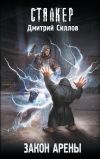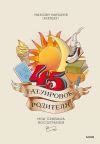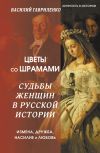Текст книги "Английский язык для студентов сельскохозяйственных вузов"
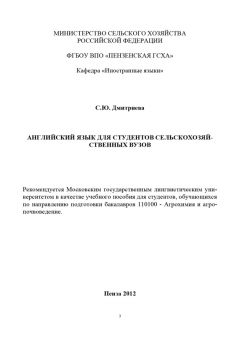
Автор книги: Светлана Дмитриева
Жанр: Учебная литература, Детские книги
сообщить о неприемлемом содержимом
Текущая страница: 3 (всего у книги 14 страниц) [доступный отрывок для чтения: 5 страниц]
It took me (about) … – у меня ушло …
Your mark is … – Ваша оценка …
PHONETICS
Четвертый тип слога (гласн. + r + e или другой гласн.)

!!! Remember [εə] where, there; [a: ] are; [ə:] were; [uə] sure Exercise 1. Read the words correctly.
a) aware, rare, rarely, spare, declare, fare, stare, dare, prepare, compare, bare, parent, share, care, square, hare, Mary, vary, glare.
b) shore, store, adore, more, sore, before, score, ignore, story, core, explore, restore, forest, pore, wore.
c) during, pure, obscure, secure, endure, furious, curiosity, purify, purification, mature, injury.
d) tired, retired, wire, admire, sire, fire, fire-place, desire, iron, dire, tyre, require, requirement.
Чтение буквосочетаний “eigh”, “igh”, “ough”

!!! Remember [ai] height
Exercise 2. Read the words correctly.
Weight, might, fight, thought, eight, weigh, high, night, knight, flight, bought, fought, brought, light, delightful, sight, mighty, bright, slight, slightest.
Чтение буквосочетания
“th” Звуки, данного буквосочетания не типичны для русской речи. Чтобы произнести их правильно, нужно поместить кончик языка между зубами. При этом губы растянуты. Буквосочетание произносится, как звук [ð] (звонкий), в служебных словах ( артикли, союзы и т. д. ), местоимениях и между двумя гласными. E.g. this, the, that, weather. В остальных случаях это сочетание даёт глухой звук [θ] E.g. third, think, breath.
Exercise 3. Read the words correctly.
With, without, then, than, this, these, thus, they, that, those, there, their, them, bathe, lathe, other, another, mother, further, father, gather, together, weather, whether, leather, feather, though, brother, bother, path, south, breath.
GRAMMAR
IT
Слово it многофункционально. От его функций зависит перевод.

Exercise 1. Translate the sentences.
1) It is my bag. It is new. I like it. It is red. 2) It is winter now. It is cold and frosty. 3) It is Mike who knows English well. 4) It is me who is to do the experiment. 5) It is your mistake. 6) It is late. 7) It is 7 o’clock now. 8) It’s no use arguing with him.
THE NOUN
Имя существительное
Существительное-это часть речи, отвечающая на вопросы: кто? что? и обозначающая лицо, предмет или явление. Существительные могут быть исчисляемыми ( для которых применим счёт, а потому имеют форму множественного числа a tree – trees; a book – books ) и неисчисляемыми ( которые нельзя посчитать 1, 2, 3… и не имеют формы множественного числа gold, time, blood, food ).
В английском языке имя существительное обладает следующими категориями:
1) Род (gender)22
Рода, как грамматической категории, в английском языке у существительных нет. Род может передаваться в лексическом значении слова, а морфологических показателей нет, за некоторым исключением: poet – poetess, lion – lioness, wait – waitress etc.
[Закрыть]
2) Число (number)
3) Падеж (case)
Понятие о роде
В современном английском языке род представляет собой понятие смысловое: все существительные, обозначающие людей, принадлежат к мужскому роду ( если относятся к мужскому полу) и могут заменяться местоимением he ; а также, к женскому роду ( если относятся к женскому полу) и заменяются местоимением she. Все неодушевлённые предметы, явления и процессы относятся к среднему роду и могут заменяться местоимением it. Помимо названий предметов, к среднему роду в английском языке относят и категорию животных, но в современной устной практике местоимение it часто заменяют местоимениями he или she ( если животное вам хорошо известно или является героем сказки, либо текст относится к теме животноводства ).
Exercise 2. Use the pronouns: he, she, it.
1) I have a cat. … has two kittens. 2) My pen is new. … is red. 3) Our dean’s name is Mr. Brown. … conducts lectures on biology. 4) I like Ann. … studies with me. 5) Russia is a big country. … covers Europe and Asia. 6) Usually a cow has one calf. … feeds … for several weeks. 7) A dog is one of the first domesticated animals. … helped man in hunting. 8) Don’t take my book. I need … 9) Lily is my sister’s little daughter. … is one month.
Exercise 3. Replace the underlined nouns by the corresponding personal pronouns. Sometimes two variants are possible.
1) Our dean shows new equipment. 2) English is not a very difficult subject. 3) My cat likes fish very much. 4) Boris is a student of the economic faculty. 5) His car is red. 6) Olga wants to be a doctor. 7) England has a mild climate. 8) Our practice will be very interesting. 9) A dog is a friendly animal.
Число имён существительных
Большинство имён существительных английского языка образуют форму множественного числа с помощью добавления окончания -s, – es к основе единственного числа. E.g.
a book – books [s]
a student – students [s]
a class – classes [iz]
a bag – bags [z]
a match – matches [iz]
Если слово оканчивается на - f или -fe, то f меняется на -ve +s.
E.g. a wife – wives [z] a leaf – leaves [z]
Если слово оканчивается на согласную + y, то y меняется на i+es.
E.g. a country – countries [iz]
Некоторые существительные употребляются только во множественном числе: E.g. contents ( содержание ) , clothes ( одежда ) , proceeds ( выручка ) , arms ( оружие ) , stairs ( лестница ) , riches ( богатство ).
Существительные, не имеющие формы единственного числа, употребляются с глаголами только во множественном числе:
cattle ( КРС ) , poultry ( домашняя птица ), binoculars ( бинокль ), scissors (ножницы ).
E.g. Where are the scissors? I can’t find them.
У слов: means, series, species форма множественного, и единственного числа совпадают. E.g. a means of transport – many means of transport; a species – 500 species of birds, a TV series – five TV series.
В английском языке есть существительные, которые сохранили древнеанглийский способ образования множественного числа. Их нужно запомнить:
a man – men
a woman – women
a child – children
a mouse – mice
a foot – feet
a goose – geese
a tooth – teeth
an ox – oxen
Некоторые слова латинского происхождения имеют особую форму множественного числа:
datum – data
basis – bases
crisis – crises
Обратите внимание на употребление следующих существительных:

Exercise 4. Give the plural form of the nouns.
A book, a table, a sister, a lecture, a fly, a boy, a hobby, a person, a mouse, a scarf, a class, a woman, a knife, a crisis, a species, a county, a pen, a foot, a leaf, a fox.
Exercise 5. Choose the correct form of the verb.
1) The trousers ( doesn’t / don’t) fit me. 2) Physics ( is / are) my favourite subject. 3) Fortunately the news ( is / are) not bad. 4) The police ( is / are) in time. 5) The TV series ( is / are) not interesting today. 6) Government (is/ are) a state institution. 7) The suburbs of our town ( have / has) many old houses.
DEMONSTRATIVE PRONOUNS
Указательные местоимения
Иногда существительным сопутствуют указательные местоимения. Они также имеют формы единственного и множественного числа.
This ( этот, эта, это) – these ( эти)
That ( тот, та, то) – those ( те)
E.g. This is my book.
These are your parents.
That is our house.
Those are your staff.
Падеж имён существительных
Имена существительные в английском языке имеют два падежа: общий ( common case) и притяжательный ( possessive case ). Притяжательный падеж отвечает на вопрос: Чей? ( whose?) Притяжательный падеж можно образовать двумя способами: 1) с помощью апострофа; 2) с помощью предлога of

Exercise 6. Make up phrases after the model.
Model: library / academy – the library of the academy Mother / Ann – Ann’s mother The camera / Tom, the eyes / the cat, the top / the page, the sister / my friend, the daughter / Candy, the toys / the children, the name / your wife, the name / this street, exams / my brother, the new manager / the company, the result / the football match, the birthday / my father, the farm / my uncle, the garden / our neighbours, the ground floor / the building, the policy / the government.
Существительное в роли определения
В английском языке одно или несколько существительных могут выполнять функцию определения к другому существительному. В такой « цепочке» последнее существительное будет отвечать на вопросы: кто? что? Все предыдущие существительные являются определением к нему и отвечают на вопросы: какой? чей?
E.g. sugar beet – сахарная свёкла; beet sugar – свекольный сахар
soil conservation practices – мероприятия по сохранению почвы
Exercise 7. Make up various word combinations and translate them.
Harvest, school, university, centre, time, day, the Earth, year, government, duty, village, autumn, apple, population, lamp, pie, home, assistant, task, lab, cattle, table, beef, library.
Exercise 8. Translate the following word combinations.
The Ecology department, Penza region, a talk show, beef cattle, a car door, the afternoon sun, nitrogen fertilizers, a balance sheet, Moscow Region State Farm Horse Exhibition, farm mechanization, machine building, a Parliament assembly, soil ecology, manure spreader, control system design, digital computer design, the system reaction identification, parameter identification methods, a crystal growth technique, a weather forecast, a winter holiday, summer rain, a cell growth rate increase, straight line motion, belt power.
Основные суффиксы имён существительных

UNIT II
PLACE WHERE I LIVE
My House
Grammar: There is/are; Some, any
My Town
Grammar: Numerals; Adjectives and adverbs
My Country
Grammar: The Verb Active Voice

LESSON 1
Task 1. Answer the questions.
1) Where are you from?
2) What street do you live in?
3) Is your house big?
4) How many rooms are there in your house ( flat )?
5) Do you have any modern conveniences in your house? What are they?
6) What is your favourite place in your flat? Why?
7) What can you see from your window?
8) Is your kitchen large?
9) Do you like to invite guests?
 Task 2. As a group, describe your classroom ( one after another add a sentence of your own to the description ). Use: There is ( are) … in the classroom. We can see … in the classroom.
Task 2. As a group, describe your classroom ( one after another add a sentence of your own to the description ). Use: There is ( are) … in the classroom. We can see … in the classroom.
 Task 3. Memorize the following words and phrases.
Task 3. Memorize the following words and phrases.
1. Come in, please. – Входите, пожалуйста.
2. Feel [fi:l] at home ( comfortable ). – Чувствуйте себя как дома.
3. You are welcome. – Добро пожаловать.
4. Sorry, I am late. – Простите за опоздание.
5. This way, please. – Сюда, пожалуйста.
6. flat [flæt] /apartment (Am. En.) [ə΄pa:tmənt] – квартира
7. block of flats – многоквартирный дом
8. floor [flo:] ( ground [graund] floor) – этаж ( цокольный этаж)
9. pavement [΄peivmənt] – тротуар
10. staircase [΄stεəkeis] – лестница
11. upstairs [΄٨p΄stεəz] ( downstairs [΄daun΄stεəz]) – вверх (вниз) по лестнице
12. the front [fr٨nt] of the house [haus] – фасад дома
13. hot [hot] and cold [kəuld] running [΄r٨niŋ] water [΄wo:tə] – горячее и холодное водоснабжение
14. modern [΄modən] conveniences [kən΄vi:njənsiz] – современные удобства
15. central [΄sentrəl] heating [΄hi:tiŋ] – центральное отопление
16. spacious [΄spei∫əs] – просторный
17. to face [feis] – выходить на …
18. appliances – бытовая техника
19. to wash up – мыть посуду
20. to bring order [΄o: də] – наводить порядок
21. to have guests [gests] – принимать гостей
22. to have a rest – отдыхать
23. in the middle [midl] of – в середине
24. in the left ( right) corner [΄ko: nə] – в левом ( правом) углу
25. duty [΄dju: ti] – обязанность
Useful Words
Task 4. Match the Russian words with their English equivalents.
In the Home

Inside and Outside

Furnishings

Appliances

Task 5. Sort out the nouns below into four groups:

a carpet, a tea-pot, a towel, a TV-set, a mirror, a bed, a sofa, a stove, a shower, soap, a pillow, an armchair, a sofa, a picture, a wardrobe, a chest of drawers, a fridge, flowers, a tape-recorder, a dressing-table, a lamp, a table.
Task 6. a) Make up word combinations with the following nouns and adjectives; b) Make up sentences with them. E.g. a) a spacious garden; b) There is a spacious garden around the house.
Nouns: a flat, a sofa, a refrigerator, a carpet, a computer, a garden, a washingmachine, conveniences, a lamp.
Adjectives: dirty, nice, spacious, modern, well-planned, comfortable, bright, pleasant, helpful, standard, convenient.
Task 7. Translate the sentences with “home”.
at home – Peter isn’t at home today.
away from home – I hate being away from home too long.
to leave home (= permanently stop living with your parents) – I left home when I was 18.
to make smth. your home – We decided to make Jamaica our home.
back home (= in my country) – Back home, the weather is much better.
to be home to – California is home for many vineyards.
Task 8. Guess the meaning. Write sentences of your own, using these words.
1) to move into a new flat – to go to live in a different flat. Eg. They’ve moved into a bigger flat.
2) to renovate – to repair and paint a building ( or a flat) so that it is in good condition again. Eg. Their flat is being renovated.
3) a landlady – is the owner of a house or a flat which is rented. Eg. Saturday was the day he had promised to pay his landlady.
4) to drop in on smb. – to visit someone informally without arranging a particular time. Eg. I think I’ll drop in on Jill on my way home.
5) a neighbour – someone who lives next to you or near you. Eg. Our next-door neighbours are so noisy that we can hardly sleep some nights.
 Task 9. In pairs, act out and translate the dialogues.
Task 9. In pairs, act out and translate the dialogues.
a) – I say, do you live in a flat?
– Yes, I do, but it is my parents’ flat. I only have a room of my own.
– Is their flat large?
– Rather. We’ve got three bedrooms, a sitting-room, a kitchen, a hall and a bathroom. My room is not very large, but it is very comfortable. There isn’t much furniture in it. On the left there is a sofa and a small table near it. At the window there is a desk. On the right there is a dressing table. Next to it there is a wardrobe for my clothes.
b) – This is a nice flat, Miss Wilkins. Here is the plan…
– I see – There is a kitchen, a bedroom, and there is a toilet.
– Is there a balcony?
– No, there isn’t
– … and a telephone?
– No, there isn’t a telephone. Here is the kitchen.
– It is very small.
– Yes, it isn’t very large, but there is a cooker and a fridge. There are some cupboards under the sink.
– I see … How much is it?
– Five hundred dollars a month.
 Task 10. Circle the correct response.
Task 10. Circle the correct response.
– How can I help you, Madam?
a) I’d like some information, please. b) I see.
– What a wonderful house!
a) That’s not enough, I am afraid. b) I’m glad that you like it.
– We’re invited to Joy’s house warming on Friday.
a) That sounds wonderful. b) Oh dear.
– Tom, we need to fix the roof.
a) Let’s hope for the best. b) I see.
 Task 11. In pairs, complete the dialogues.
Task 11. In pairs, complete the dialogues.
1) – Do you …?
– No, I don’t live far from the university. And you?
– … By the way, do you have … of your own?
– Oh, yes. I’ve got a small room, but it is very light and rather warm. Will you come in and see?
2) – …?
– I live on the ground floor.
– …?
– There are three rooms in my flat.
– …?
– Of course, it is my sitting-room that I like best, because it is light and spacious and there is a TV set there.
Text 1
Philip Stanley’s House
Philip Stanley is proud of his house. It is not very large, but it is very comfortable and well-planned. Any Englishman likes to live in a two-storey detached house. So does Philip. He prefers his own house to an apartment in a block of flats, because he doesn’t wish his doing to be overlooked (to overlook – подсматривать, заглядывать) by his neighbours.
In front of the house there is a green lawn and a lot of flowers. Behind it there is an orchard with some fruit trees in it. Mrs Stanley is fond of flowers and trees. She often spends her spare time there. On the north side of the house there is a garage.
On the ground floor there is a kitchen, a pantry, a dining-room, a sitting-room and Philip’s study. On the first floor or upstairs you can find two bedrooms and a bathroom.
The furniture is modern and new. The windows are large. The family like to meet in the sitting-room in front of the fire-place. Philip has to pay a lot of money for the house before he can call it his own.
The Stanleys like their home. They enjoy its quiet pleasures, its comfort, its sweet familiar atmosphere.
Exercise 1. Read and translate the text.
Exercise 2. Look at the plan of the text. Is it correct?
Plan
I A Typical English House
II The Furniture
III Inside the House
IV Outside the House
V Sweet Home
Exercise 3. Answer the questions.
1) Is Philip Stanley’s house large?
2) What is there in front of the house and behind it?
3) What rooms are there on the ground floor?
4) What rooms are there on the first floor?
5) What kind of furniture have the Stanleys got?
6) What is Mrs Stanley’s favourite place?
 Exercise 4. In pairs, act out a conversation between Philip and Linda. The situation: Philip and Linda are discussing how to furnish the sitting-room ( the study, their daughter’s bedroom)
Exercise 4. In pairs, act out a conversation between Philip and Linda. The situation: Philip and Linda are discussing how to furnish the sitting-room ( the study, their daughter’s bedroom)
Use the speech patterns:
– Let’s put … – Давай поставим …
– I’d like to … – Мне бы хотелось …
– It is not a very good idea. – Это не очень удачная мысль.
– Let it be so, dear. – О дорогая ( ой ), пусть будет так.
– You are right. – Ты прав( а ).
– Nothing of the kind. – Ничего подобного.
Home, sweet home
Task 1. Suggest Russian equivalents for the proverbs and sayings.
1) East or West – home is best.
2) My home is my castle.
3) Wash your dirty linen at home.
4) Everything is good in your garden.
Task 2. Make up a list of your household duties.
Begin with: “My regular duties are washing up dishes, …”
For help: to walk the dog, to cook breakfast, to repair things, to go shopping, to clean the house, to make my bed.
 Task 3. Make up your address book and write down your groupmates’ addresses. Use the following address abbreviations:
Task 3. Make up your address book and write down your groupmates’ addresses. Use the following address abbreviations:
Ave. (Avenue), St. (Street), Rd. (Road), Bvld. (Boulevard), VLG. (village), PK (Park), SQ (Square)

Task 4. Look at this sitting-room. Do you like it? Does it look like yours? What is the difference? Can you describe it?

Use the phrases:
As for … ( что касается …)
In the middle of … ( в середине)
To the right ( left) of In front of …
We can see …
There is ( are)
A flat to let
Task 1. Look at the advertisements “Flat to let” and the people’s preferences. Tick the flat which best suits each person.

 Task 2. You are to rent a flat (a room). Phone the landlady and ask her questions. Use: Is there … nearby? (a clinic, a post office, a park, a hairdresser’s, a cinema, a library, a bus station, a bank, a shoe repair shop, a café, a railway station, a department store).
Task 2. You are to rent a flat (a room). Phone the landlady and ask her questions. Use: Is there … nearby? (a clinic, a post office, a park, a hairdresser’s, a cinema, a library, a bus station, a bank, a shoe repair shop, a café, a railway station, a department store).
Text 2
There’s No Place Like Home
About 64 % of the British population live in houses or flats that they own or are buying in instalments (покупают в рассрочку). Most other people live in council accomodation, about 10 % rent from private landlords. People buying their property almost always pay for it with a special loan called a mortgage, which they must repay, with interest (с процентами), over a long period of time, usually 25 years.
There are three main types of houses in Britain:
terraced – several houses, usually two-storey, joined together in a row or terrace;
semi-detached – a pair of houses joined together;
detached – a single house, completely separate from any other.
This house is over 600 years old.
A big problem in England is the rising cost of houses.

The lives of most Americans revolve around their homes and houses. The percentage of Americans owning the houses (and apartments) they live in is the highest among western nations. Most Americans still live in “single-family dwellings,” that is, houses which usually have a front and backyard. Contrary to a common belief, only about 5 percent of all Americans live in mobile homes. Most of America has a more or less four-season climate, and the rhythms of life around the house tend to follow the seasons. There is always something that needs to be done around the house, and most Americans do it themselves.
Exercise 1. Scan the text.
Exercise 2. Answer the questions: “Have you got any new information? What is it about?” Use: I’ve learned that (about) …
Exercise 3. Find in the text the sentence which proves the following information:
2003
Average wage per year: £20,000
Average house price: over £120,000.
2007
Average wage per year: £23,244
Average house price: £184,924
Exercise 4. Divide the text into logical parts and give information of each one.
Use: I think this text should be divided into … logical parts. The 1st (2nd, 3d …) part informs the reader (is about… is devoted to …) the main thought (sentence) of it is … It is interesting that …
BE READY
1  Write a composition.
Write a composition.
1. Advantages and disadvantages of living in a house ( in a flat ).
2. My dream house.
3. I like old-fashioned houses.
Words for help: a candle, our family room, the air of crowded family life, plants in pots, picturesque, a room of my own, with a view over the sea (forest), cracks, pechka

When you are invited
2 . In groups, act out a conversation. The situation: You’re having a housewarming party. Information for help:
When you’re invited you are expected to arrive at exactly the time or some minutes later. It’s good manners to take a small present. It could be a bottle of wine, a box of chocolates or a few flowers. Some useful phrases:
Hello, nice to see you.
I’ve brought you a small present.
Come in, please. That’s very kind of you. You shouldn’t have bothered.
Make yourself comfortable. (Устраивайтесь поудобнее.)
Would you like to come to the table?
What a nice house ( flat, room) you’ve got!
Help yourself to mushrooms ( fish, bisquits, …) ( Попробуйте грибы, …)
Would you like some more salad, ( brandy…)? – Oh, no, thanks … no more for me.
Thank you very much. The dinner has been delicious.
I’m glad you liked it.
I must go. Thank you for a wonderful evening.
There is work to do.
PHONETICS
Чтение буквосочетания “ph”– [f]
Exercise 1. Read correctly.
Photo, phase, phone, telegraph, photosynthesis, philosophy, physics, atmosphere, phenomenon, sphere, graphically, geography, topography, biography, pheasant, phantasm, emphasize, emphatic, alphabet.
Чтение согласной “s”

Exercise 2. Read correctly.
a) say, skate, surname, salt, south, pass, space, crops, species, silver, combustion, state, swallow, ducks, books, cats, suppress, west, spring, summer, smile,
b) bags, foxes, matches, please, rise, exercise, phase, daisy, cause, because, rose.
c) sheep, she, shelf, shower, shovel, shine, mash, mushroom, show, cash, flesh,
Чтение буквосочетаний с буквой “o”

Exercise 1. Read correctly.
a) coat, road, roast, boat, board, boar, cold, mold, old, sold, bold, molder, older.
b) boil, point, boy, toy, moisture, poison, decoy, voice, employ, employment, destroy.
c) took, hook, look, book, undertook, rook, brook, Brooklyn, shook.
d) fool, soon, scooter, too, moon, cool, tool, retooling, boot, tooth.
e) mouse, house, bought, thought, ought, fought, brought, aloud, cloud, cloudy, out,
f) [ou] know, grow, show, bowl, flow.
g) [au] Flower, cow, down, brown, power, tower, shower, frown, plow, plowing, now, tower.
GRAMMAR
THERE IS/THERE ARE
В предложениях с вводным словом there ( конструкция: there is/there are) слово: there является формальным элементом и на русский язык не переводится. Данная конструкция употребляется для указания на наличие или отсутствие лица или предмета в определенном месте. Глагол to be обычно согласуется с подлежащим, непосредственно следующим за ним..Если за конструкцией следует цепочка существительных, то выбор формы глагола to be зависит от числа первого существительного. Eg. There is a cooker, two chairs and five plants. There are five plants, a cooker and two chairs. Перевод конструкции следует начинать с обстоятельства места. Если обстоятельства места нет, то перевод начинают со слов: существует, имеется, есть, различают и т. д. Eg. There is a big library in the new building. ( В новом корпусе находится большая библиотека ). There are many different crops. ( Существует много с/х культур ).
В данную конструкцию, кроме глагола to be, могут входить и некоторые другие непереходные глаголы, например: to exist – существовать, to come – приходить, to live – жить и другие, а также глаголы в страдательном залоге. Eg. There exist a great number of butterflies. ( Существует огромное количество бабочек ). Если слово there употребляется самостоятельно и не участвует в конструкции, то оно является наречием и переводится: там, туда. Eg. I have to go there. ( Я должен пойти туда ).

Exercise 1. Use: is, are.
1) There … many students in the library now.
2) There … a pencil in my bag.
3) There … different farm machines on the farm.
4) There … a table and a sofa in my room. 5) There … a new computer in the office.
Exercise 2. Use to have (got), to be, there is/are for translation.
1) У него сегодня три урока.
2) В парке есть тихие безлюдные места.
3) Мы на занятии.
4) У нас мало времени.
5) В лаборатории много химикатов.
6) Существует много видов пластика.
7) В холодильнике мало молока.
8) В нашем хозяйстве много новых пород КРС.
9) В твоей работе много ошибок.
10) У меня много ошибок в сочинении.
11) В читальном зале только один студент.
Exercise 3. Make the sentences negative and interrogative.
Model: There is a clock on the wall.
There is no clock on the wall.
Is there a clock on the wall? – Yes, there is/ No, there isn’t.
1) There is a table in front of the window.
2) There are two cats in his house.
3) There are many wheat varieties on this farm.
4) There is a serious problem in our situation.
5) There are many interesting places in London.
6) There are six girls in our group.
7) There is a letter for you.
Exercise 4. Change the sentences after the model.
Model: I’ve got a newspaper in my bag. – There is a newspaper in my bag.
1) We’ve got much free time during the holidays.
2) They’ve got many potted flowers in their sitting-room.
3) She’s got a tape-recorder on her desk.
4) We’ve got many questions about the problem.
SOME, ANY, NO и их производные

В утвердительных предложениях any означает “ любой ”; anything – “ что-угодно”, anybody – “ кто-угодно ”, anywhere – “ где-угодно”,“ кудаугодно ”, anyhow – “ во всяком случае ”, anyway – “ всё равно ”.
Exercise 5. Translate the sentences.
1) There are two windows on the right and a door on the left.
2) There is a bookcase in the corner of the room.
3) Are there any questions?
4) There is no dictionary in my bag.
5) There are over thirty students at the lecture.
6) I would like to work there.
7) Many years ago there lived a famous painter.
8) There is no place like home.
9) She told us something interesting.
10) Is anybody at home?
11) The college is in London.
12) There is some bread and milk.
13) There comes the time when molecules break down.
14) There are many types of electric motors.
15) His relatives live somewhere in Australia.
16) There is nothing to say.
17) You will have to tell the truth, anyway.
18) Ask somebody to help you.
19) There are three main questions in economic theory.
20) Between two double-periods there is a 15 minutes break.
21) There is no doubt about it.
22) Any Englishman knows this story.
23) There isn’t any ink in the pen.
24) Nothing will change my opinion.
25) Do you see him anywhere?
Exercise 6. Translate into English.
1) Мне нравятся некоторые английские писатели. 2) В лаборатории кто-то есть. 3) Здесь делать нечего 4) В расписании есть какие-нибудь лекции? 5) В вазе несколько цветов. 6) В работе нет никаких ошибок. 7) На столе писем нет. 8) Спроси у кого-нибудь, как проехать (пройти) к вокзалу.
Правообладателям!
Данное произведение размещено по согласованию с ООО "ЛитРес" (20% исходного текста). Если размещение книги нарушает чьи-либо права, то сообщите об этом.Читателям!
Оплатили, но не знаете что делать дальше?